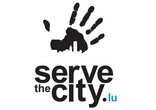
The red Gold : Slave labour in agriculture
12 hours of backbreaking labor in scorching heat for 30 euros - without employment contracts or health insurance. This is not an example from a faraway developing country, but a bitter reality in the heart of the EU. Italy is a leading global producer of processed tomatoes and the largest tomato fields lie in the heel of the boot. The prices for tomato processors who make concentrates, sauces and ketchups from raw fruits are constantly pushed down. These processors, in turn, keep adjusting the prices they pay farmers to maintain their profit margins.
The working conditions of migrant workers in Italy - mainly Africans - have been an open secret for years. In the south of Italy, the salaries of foreign farm workers are so low that many NGOs describe their conditions as a form of modern slavery. Some have Italian residence permits, but many do not. Due to the overload of the system, it can take years to process an asylum application. There are limited places in reception centers for refugees and most migrants live outside of these facilities during their asylum procedure. Of the more than 43,000 asylum applications in 2019, 81% were rejected. However, rejected asylum seekers are rarely deported. Most of them receive a letter asking them to leave the country in X days. The largest reception centers for migrants are almost all in the south, where mafia organizations have the greatest control and where agriculture requires a constant supply of cheap labor. Desperate for work, these day laborers will take any job, even if the wages are far too low and the hours far too many. Undocumented workers are outside the law so they cannot expect protection.
Although official data on illegal agricultural work are not available, the largest Italian agricultural workers union estimates that between 400,000 and 430,000 workers in the sector have an irregular visa status and are vulnerable to exploitation and abuse. African migrants usually come to Italy in heavy debt after borrowing money to finance their trip to Europe. They often don’t know anyone when they reach their goal and have no one to turn to in trouble. Few reveal to the relatives at home the desperate situation they find themselves in. In order to survive, workers often migrate from one job opportunity to the next. After a winter in Calabria where oranges and kiwis are picked, they head north to Campania in the spring to harvest strawberries and melons. In summer they go to Puglia to pick tomatoes and peppers before moving to Veneto or Piedmont in early autumn to harvest grapes.
Solutions ?
Certification systems that state that products do not come from slavery are part of the solution. However, the traceability of canned products is difficult, and it is often even more difficult for loose fruit. In Italy there is also the problem that the industry is largely controlled by the mafia. Fairtrade products certify fair trade products from non-EU countries. There are various initiatives to introduce certification systems for fair working conditions in the EU as well, but so far none has really been able to establish itself - in contrast to organic labels, for example. Change will not happen without pressure from consumers. The demand for products that were manufactured under fair conditions is growing steadily in Europe. The solution is not to stop buying Italian tomatoes, but to demand more transparency and more control. As consumers, we can and should demand that our food is not only healthy, but also respects labor law and human dignity.
More information : www.decentwork.lu
Carole Reckinger – Social Policy Analyst Caritas Luxembourg
This article has been adapted from an article by the same author in “Forum”.
Picture : Unsplash @claybanks






















